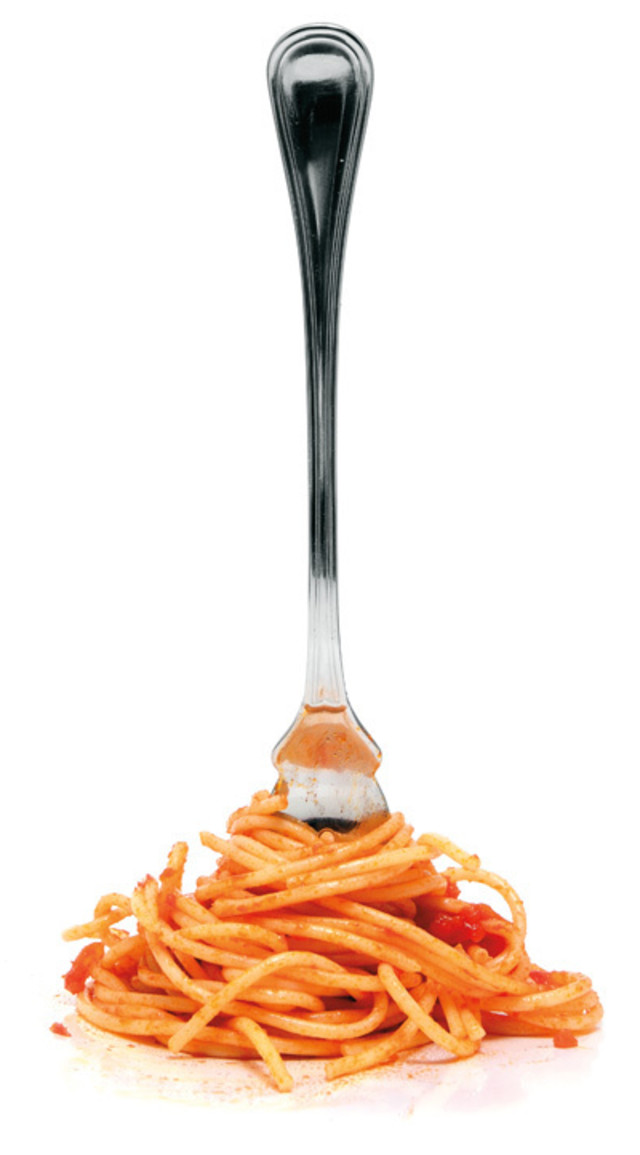A Fork in History

Image: Courtesy Shutterstock
The famed folk singer Lead Belly had died.
The only logical action, to the people who lived at 1414 SE Lambert St (and there were many), was an impromptu wake. Guitars strummed “Good Night, Irene,” and dirt-cheap Famiglia Cribari Vino Da Tavola disappeared by the jugful.
It was on (or about—things get fuzzy) December 6, 1949. During the war, the old evangelical preacher who owned 1414 had carved the house up into tiny apartments, which he rented to workers who streamed into Portland to build battleships. After the war, students arrived: GI Bill vets and younger proto-bohemians of all persuasions, hungry for intellectual stimulation and cheap rent. For several years after, 1414 fostered an ever-shifting Reed College social scene, home to a dozen or more students at any one time.
“The young men returned with serious intent,” recalls Rosemary Lapham Berleman, who lived at the house for a stretch with her husband and young son. (She was good enough to read to me, over the phone, a brief memoir she wrote about the period.) “They had a sense of tragedy, and curiosity.” Berleman remembers budding poet Gary Snyder living in an austere basement den, guarded by a sign reading “The tiger in the tiger pit is not more ferocious than I.” (A Snyder biographer records: “This ‘Zen retreat’ ... attracted a constant stream of beautiful young ladies.”) Philip Whalen, another poet and future Zen monk, hosted an unending mah-jongg game. “Social life was constant,” Berleman says: poetry readings, parties, feasts fueled by horsemeat spaghetti sauce. (“We found a butcher that sold it cheap,” she remembers.)
A few years later, both Snyder and Whalen appeared at the legendary Gallery Six poetry reading in San Francisco, the night Allen Ginsberg unleashed Howl. Poet Lew Welch became the basis for a Jack Kerouac character. Don Berry wrote Trask, one of Oregon’s great novels.
That’s a sizable cultural footprint for one Portland crash pad. In Berry’s overly vivid phrase, the house became a “birth canal for the Beat Generation.”
Talking to Berleman and her partner, Bill Baker, who also experienced 1414’s heyday, reminded me that before history becomes History, it’s simply life. (“We were just a bunch of people who liked to talk,” Baker says.) And as Randy Gragg’s rambunctious run through 50 pivotal days (and nights) on page 59 reveals, Portland history tends to unfold in these delightfully unexpected ways. Naturally, political titans, business power brokers, and cultural heavyweights helped shape our city. But so did doughnut kings, shaggy-haired sports stars, and punk rockers. And, of course, two pig roasts, a couple of picnics, one weird office in Beaverton, and an epic night of jazz. In Portland, it seems, change can happen over dinner—or a drink.
Rosemary Lapham Berleman’s sentiment, as she looks back, is one we should all strive for: “We were delighted to be part of it.” Personally, however, I’ll skip the horsemeat spaghetti.
